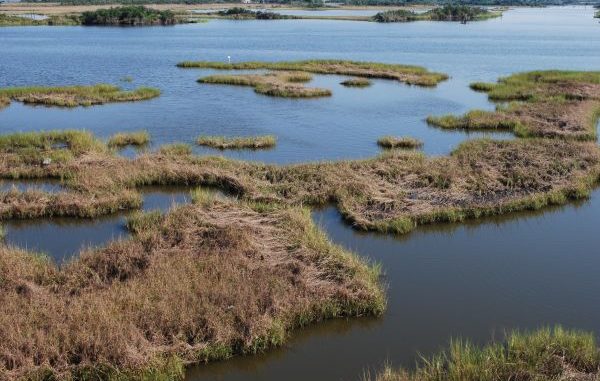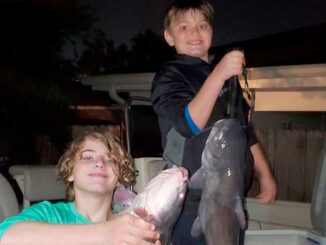
With 41 years in outdoors writing under his belt, Bob Marshall has a wealth of experience. Here’s what he had to say about the future of what he holds dear.
Coastal Issues
“The most-important issue is the crisis of the coast, particularly the southeastern Louisiana coast,” Marshall said. “The combination of sea level rise and subsidence is staggering.
“The numbers from (the National Oceanic and Atmospheric Administration) for relative sea level rise is 4.4 feet. At that level, most of the area outside of hurricane protection levees will be underwater.
“Equally disturbing is that, while we have a master plan for the coast that is receiving great reviews, most of the projects on that plan were designed for maximum sea level rise of 3 feet.
“On top of that, we have gotten no money from Congress. It’s a $50 billion plan over 40 years.
“Using football analogy, we’re down by four points, out of timeouts, with 30 seconds left on the clock. It’s third down, with 10 yards to go, and we are on our own 5-yard line.
“People who live here who care if their grandchildren will have a dry place to live south of I-10, need to get involved in understanding the problem and addressing its solution.
“Or they need to live in houseboats.”
On Hunting
“Access to places to hunt within affordable distance is important. So is the cost of hunting,” he explained. “The population shift to the cities that started the decline in hunting participation continues.
“Climate change is the biggest long-term threat to hunters. It will destroy some habitats, and we are already seeing a shift in some species’ range. Worst-case scenario is an 8-degree Fahrenheit rise by the end of the century. Climate is the No. 1 concern of professional wildlife management groups such as the Association of Game and Fish Agencies and the Wildlife Society.”
Marshall scoffed at the threat from anti-gun/hunting groups, saying he has always felt the anti-hunting lobby has been over-hyped.
“Animal-rights groups,” he said, “do not have the persuasive powers with the public that some think. Anti-hunting groups have gotten more publicity from outdoor writers than on their own in the past.
“Survey after survey shows that the public supports hunting if fair chase is involved and hunters eat their kill. Trophy hunting has never been supported.”
On Fishing
“Here again the future will be affected by climate change,” Marshall said.
He said he believes the productivity of coastal estuaries will decrease, although probably not in his lifetime. Freshwater fishing will change dramatically with shifts in fish species. Cold-water species will be replaced by warm-water species, a concern at higher altitudes because “fish can’t climb mountains.”
On Pollution
“Water is cleaner now than ever before in recent history, but nitrites (nutrients) are a big concern,” Marshall said. “Pollution doesn’t worry me as much as does sea level rise.
“The search for energy is a big nut, and will continue to be. If it is done in damaging ways, it can reduce fisheries productivity. This is where it is important for fisheries groups to be involved.”
On Recreational/Commercial Fishing Conflicts
“Commercial fisheries are dying, which is a shame,” Marshall said. “The big fight is likely to be over mariculture and its impacts on fishing.
“Recreational groups are becoming more politically powerful here and in Washington. A conflict coming to coastal areas, which hasn’t been talked about much, is competition between recreational fishing and another segment of commercial fishing, which is guides.”
Marshall has recommended for years that guides step forward with self-regulation, like limited entry. He sees the weekend sport showing up at his spot and finding six boats with four people each.
“We are likely to see more of what is happening elsewhere, which is guides asking for lower limits,” he said. “The pressure is on them to produce limits.”
On Journalism
“All printed products face challenges because their economic model has collapsed—for two reasons,” Marshall said. “People read less, and many of those that do read, read the Internet.
“Local hunting and fishing publications will trend the same way that numbers of hunters and fishermen go. Participatory sports have avid readership.
“The age of newspaper writers began to collapse in the mid- to late-1980s. I was one of a dozen full-time outdoors writers left at major metro dailies. It is phenomenal that Louisiana has two of them.”
